Solaniwa Onsen: Kansai’s largest hot spring theme park is also one of its most beautiful
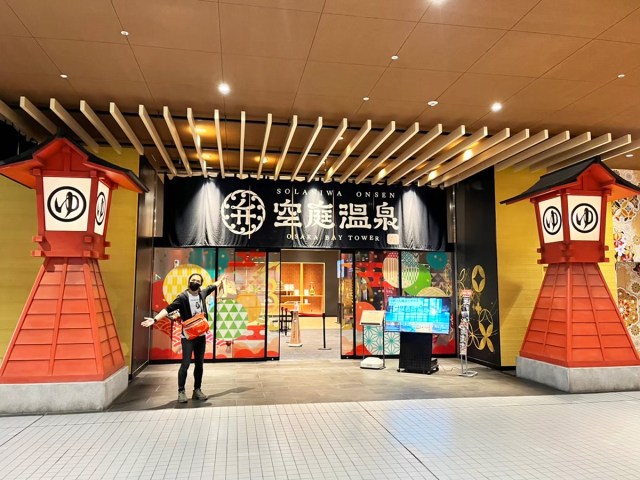
Finally, a super hot spring facility that accepts people with tattoos…on one condition.
If you’ve been reading our site for a while, you may have noticed that our Japanese-language reporter Go Hatori has been keeping a secret up his sleeve, literally, as he has a tattoo on his upper right arm.
While he doesn’t mind letting his ink see the light of day when he’s travelling overseas, here in Japan, where tattoos are still commonly associated with the yakuza, Go prefers to keep his hidden.
Despite not having any links to organised, or unorganised, crime, Go has made his peace with the decision to keep his tattoo concealed in Japan, but the one time it poses a problem for him is when he wants to visit a public bathing facility. Lots of these places don’t allow people with tattoos to use their facilities, given that it makes other bathers feel uneasy about having a possible gang member in their midst, so Go has been on a mission to find and rate the public baths that do allow people with tattoos to enter.
During his mission, Go has discovered that a number of public baths in big cities permit bathers with relatively small tattoos like his, but the places that are most likely to refuse tattooed bathers are super hot spring facilities, which is the name given to multi-floor establishments often taking up an entire building with a variety of different bathing experiences on site.
So you can imagine his thrill when he heard about a super hot spring facility in Osaka that accepts people with tattoos. The facility, called “Solaniwa Onsen“, is so big it’s known as the largest hot spring theme park in Kansai (the region in and around Osaka).
When he arrived at the facility, he saw a sign at the entrance listing things that aren’t permitted on site, and one of those things was people with tattoos, including “fashion tattoos” (outlined with a red box below).
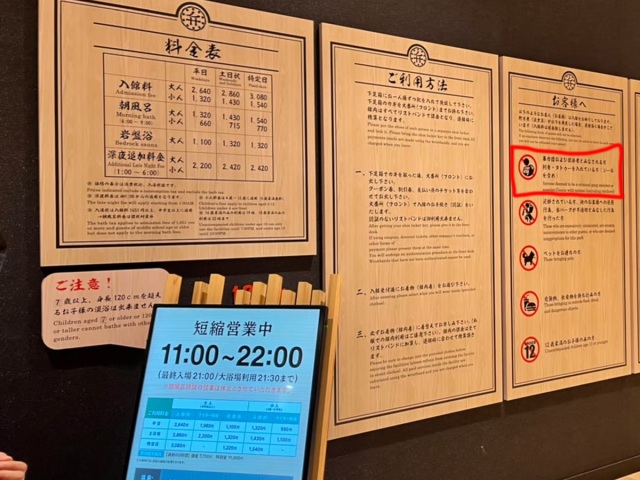
“Fashion tattoos” is a term that’s becoming more common at bathing facilities to refer to innocuous everyday tattoos and delineate them from the ones associated with yakuza members.
Go’s tattoo would be classed as a fashion tattoo, and seeing as he’d done his homework before visiting, he knew better than to turn away after reading the sign.
However, Go had done his homework before visiting, so he knew that the facility was now conducting a trial operation of introducing a tattoo cover sticker in consideration of the company’s autumn demands and differences in overseas culture.
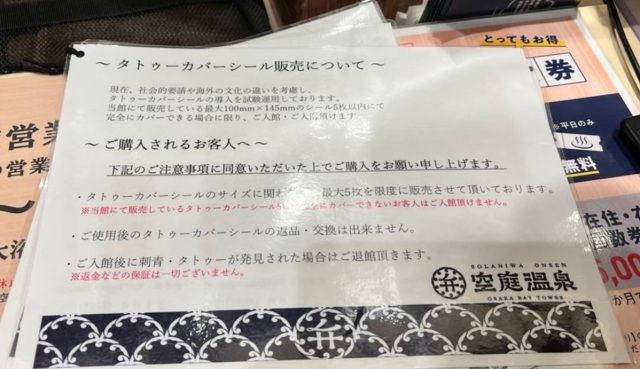
According to the instructions outlined on the laminated sheets shown to him at the reception desk, people with tattoos can now enter and use the baths as long as they can completely cover their tattoos with a maximum of five 10 by 14.5 centimetre (3.94 by 5.7 inch) tattoo cover seals, sold on site.
Staff showed Go the “tattoo cover seals”, which ranged in both size and price, from 100 yen (US$0.75) for a small up to 400 yen for a large.
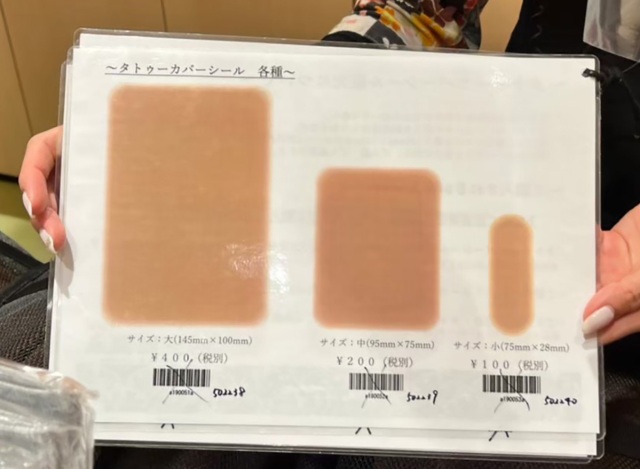
Go bought the largest one and found that it was super easy to use — simply peel it off and stick it on.
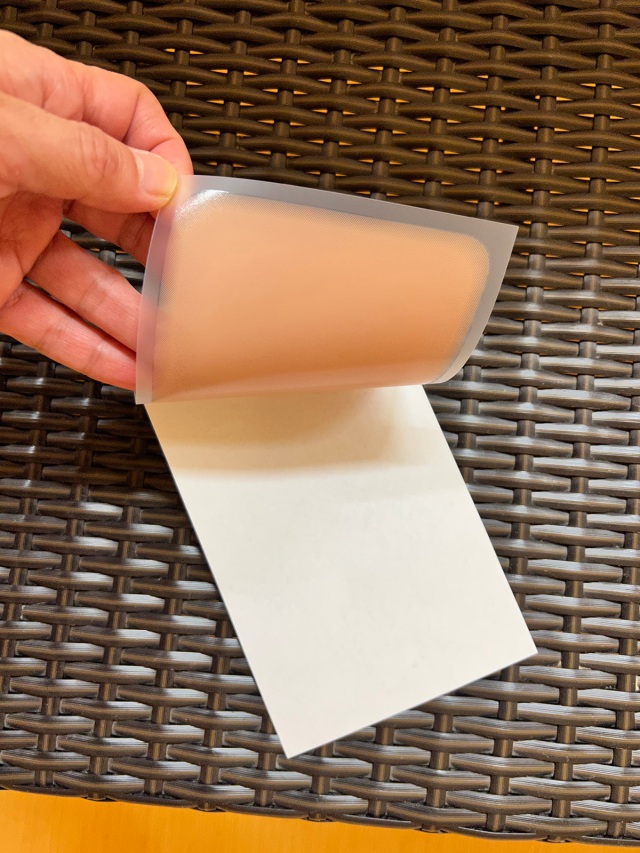
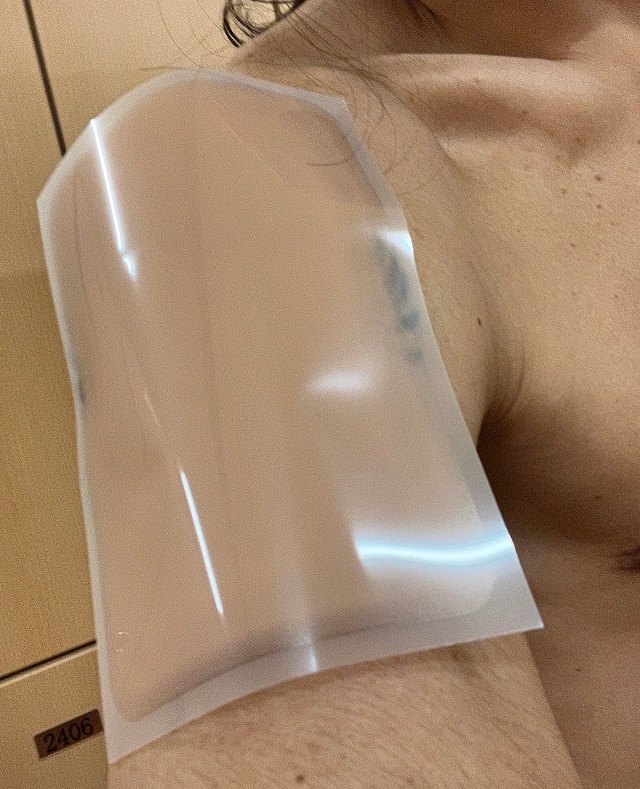
Go removed the plastic and the seal adhered to his skin, perfectly covering his tattoo and blending in pretty well with his skintone. With a little practice, he’d probably be able to get it to look less wrinkly and warped, but this wasn’t bad for Go’s first attempt.

With his tattoo now covered, Go was free to roam through the entire facility, wearing the yukata robe and sash provided.
▼ Look how gorgeous this place is!
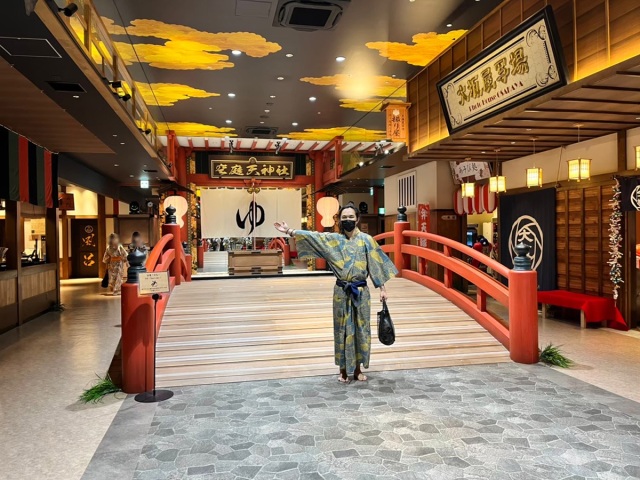
There are nine types of baths to enjoy here, including natural hot springs fed with water pumped from 1,000 meters (0.6 miles) underground. There are also seven types of bedrock baths, loads of rest areas, and places to buy food and drinks, all beautifully adorned with traditional embellishes that made Go feel as if he were visiting a hot spring town.
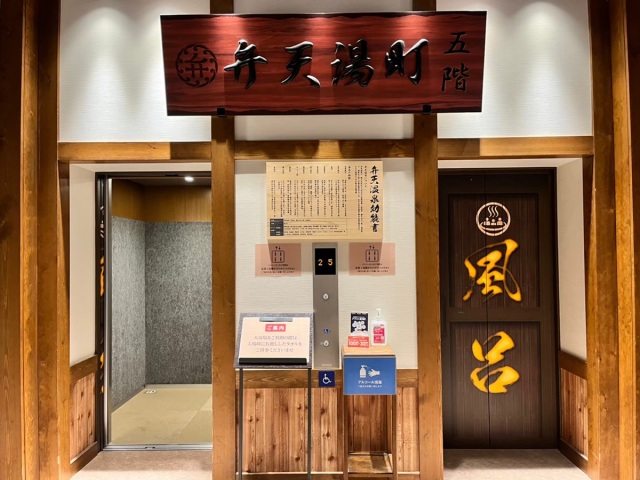
While Go was unable to take photos of the bathing areas, he was able to snap a photo of his post-bath arm in the changing room.
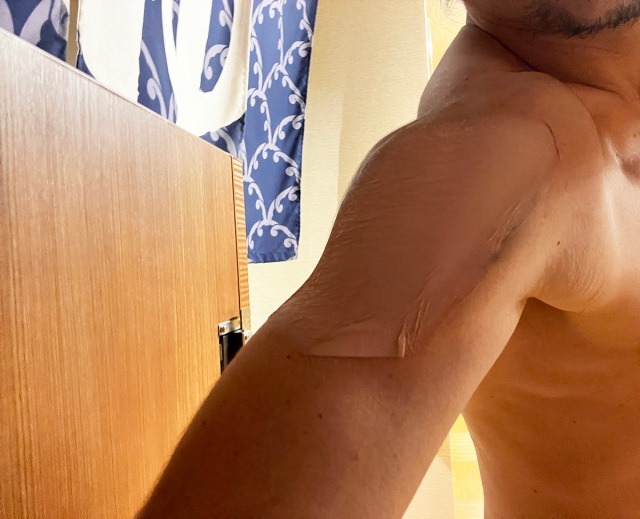
The tattoo cover seal worked a treat, staying firmly on, and in one piece, no matter how many baths he visited. Despite its strong water resistance, when it came to the end of his visit, the seal peeled off easily, so Go was seriously impressed with its effectiveness and ease of use.
As an inked onsen lover in Japan, Go had always thought he would never be able to visit a hot spring theme park like this in all his life, so he felt an enormous sense of gratitude for Solaniwa’s decision to implement this trial.
By the end of his visit, Go — who loves onsen so much he created his own cheap rotenburo at home — felt like he could burst into happy tears, and he hopes more places will use this system as a way to open their doors to people with tattoos in future.
Solaniwa’s admission fees range from 1,320 yen for morning baths, through to 2,640 yen for adults on weekdays and 2,860 yen for weekends and holidays, but they have a variety of options available so please check their official website below for details.
Information
Solaniwa Onsen Osaka Bay Tower / 空庭温泉
Address: Osaka-fu, Osaka-shi, Minato-ku, Benten 1-2-3
大阪府大阪市港区弁天1丁目2-3
Open: 11:00a.m.-10:00p.m. (last entry 9:00 p.m.)
Holidays: Once a month (15 June, 13 July, 24 August, 14 September, 12 October, 9 November, 14 December)
Website
Photos: ©SoraNews24
● Want to hear about SoraNews24’s latest articles as soon as they’re published? Follow us on Facebook and Twitter!
Credit:

0 comments:
Post a Comment